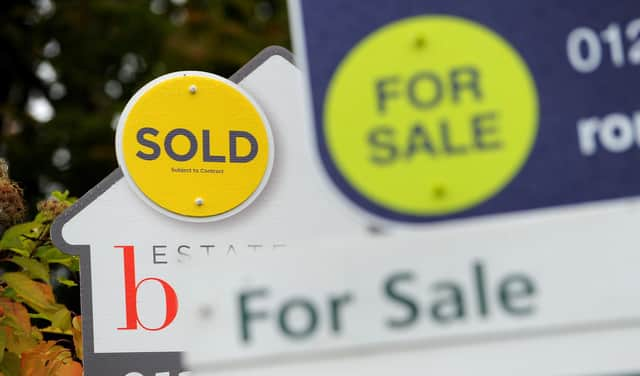South Tyneside house prices dropped slightly in March


House prices dropped slightly, by 0.9%, in South Tyneside in March, new figures show.
But the drop does not reverse the longer-term trend, which has seen property prices in the area achieve 6.2% annual growth.
Advertisement
Hide AdAdvertisement
Hide AdThe average South Tyneside house price in March was £150,263, Land Registry figures show – a 0.9% decrease on February.
Over the month, the picture was worse than that across the North East, where prices increased 1.1%, and South Tyneside underperformed compared to the 0.3% rise for the UK as a whole.
Over the last year, the average sale price of property in South Tyneside rose by £8,800 – putting the area 11th among the North East’s 12 local authorities with price data for annual growth.
The best annual growth in the region was in Sunderland, where property prices increased on average by 14.4%, to £142,000. At the other end of the scale, properties in Gateshead gained just 2.9% in value, giving an average price of £144,000.
Advertisement
Hide AdAdvertisement
Hide AdWinners and Losers
Owners of flats fared worst in South Tyneside in March – they dropped 1.4% in price, to £87,066 on average. But over the last year, prices rose by 3%.
Among other types of property:
Detached: down 0.5% monthly; up 10.1% annually; £287,329 averageSemi-detached: down 0.6% monthly; up 6.9% annually; £167,927 averageTerraced: down 1.1% monthly; up 5.5% annually; £131,711 average
First steps on the property ladder
First-time buyers in South Tyneside spent an average of £133,600 on their property – £7,300 more than a year ago, and £25,000 more than in March 2017.
By comparison, former owner-occupiers paid £167,300 on average in March – 25.2% more than first-time buyers.
Advertisement
Hide AdAdvertisement
Hide AdHow do property prices in South Tyneside compare?
Buyers paid 3% less than the average price in the North East (£155,000) in March for a property in South Tyneside. Across the North East, property prices are lower than those across the UK, where the average cost £278,000.
The most expensive properties in the North East were in North Tyneside – £194,000 on average, and 1.3 times as much as more than in South Tyneside. North Tyneside properties cost 1.6 times as much as homes in County Durham (£123,000 average), at the other end of the scale.
The highest property prices across the UK were in Kensington and Chelsea.
Factfile
Average property price in March
South Tyneside: £150,263The North East:£154,913UK: £278,436
Annual growth to March
South Tyneside: +6.2%The North East: +8.7%UK: +9.8%
Best and worst annual growth in the North East
Sunderland: +14.4%Gateshead: +2.9%